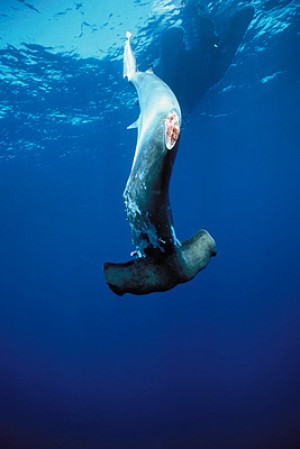Is shark fin soup tasty?
We were bombarded with this question during a recent trip to Castaway Island Resort.
The question floated around the grog bowl for a long time-some even queries on the practicality of ban in the shark fin trade.
We understand where they are coming from.
Although the practice of shark finning is banned in some countries, including the United States, shark fins are still legally sold on the open market.
Criticizing others, especially what and how they eat, is a touchy subject. When it’s seen as a cultural practice, boy, does it get bad.
While we hold our ground that the way fins are harvested is unusually cruel and barbaric where Sharks are caught, fins are cut off, and the rest of the shark is thrown back into the water to meet a slow death of drowning or being devoured alive, I came back to the mainland dissatisfied.
I was determined to find out what’s so special about this expensive and popular delicacy blamed for a sharp decline in global shark populations.
The quest started with Wikipedia and it say the Shark fin soup dates back to Ming Dynasty China and is considered by Chinese as one of the eight treasured foods from the sea.
The popularity of shark fin soup rose in the late 18th and early 19th centuries as standards of living began to improve. The delicacy was coveted by emperors because it was rare, delicious, and required elaborate preparation.
Holding both culinary and symbolic significance, the dish is popular at important occasions such as weddings, banquets, and important business deals.
It symbolizes wealth, power, prestige and honor. This staple of gourmet Chinese cuisine is a show of respect, honor, and appreciation to the guests.
It went on to say that genuine shark fin soup or stew is made with shark fins obtained from any of a variety of shark species. Raw shark fins are processed by first removing the skin and denticles, then trimming them to shape and bleaching to a more desirable colour.
It is sold in many forms: dried, cooked, wet and frozen. Canned ready-to-eat shark fin soup is also available in Asian markets.
According to Wikipedia, in shark fin soup, the fins themselves are virtually tasteless. The taste comes from the soup, while the fins are valued for their texture.
A Chinese chef who chooses to remain anonymous gave the best narration. He said the taste is somewhere between crunchy and chewy.
The man who has been running this upscale restaurant in Nadi Town for a long time went to say that shark fin soup tastes boring and it’s stupid to pay a hundred dollars for a pot of it.
While he has tasted the dish so many times in his homeland, the 40 year old man said Shark fin is a non essential food.
“I didn’t question what I was eating. I knew it was called shark fin soup but I don’t think it ever registered that it was the fin of a shark and certainly not how it was harvested. It’s just cartilage, with no nutritional value. The taste comes from the broth it is served in and the broth is either chicken- or beef-based. But people still somehow tout shark fin soup as tasty. It’s a ritual that we can live without,” he said.
Celebrity chef Gordon Ramsey taste tested it on camera and said the same. So did a reporter from Time, who found it,” underwhelming.”
The good news is that I think we live in an age where many people have understand that there are more delicious and inexpensive animals we can kill and eat than sharks.
Even China has prohibit official banquets from serving shark fin soup, an expensive and popular delicacy blamed for a sharp decline in global shark populations.
The ban, reported by Xinhua, the state-run news agency, could take as many as three years to take effect, and it remains unclear how widely it will be adhered to across a sprawling nation where orders issued by Beijing are often shrugged off by officials in faraway regions and provinces.
Sharks are important for the health of our oceans and it’s a waste to cut off their fins and let them drown to death slowly at the bottom of the ocean.
They are the top of the marine food chain and decimating their populations has far rippling effects on unbalancing the marine food web.
In some parts of the world, 90per cent of the shark population is gone.
If you knew how shark fins go from the shark in the ocean to the soup on your table, would you eat it?


